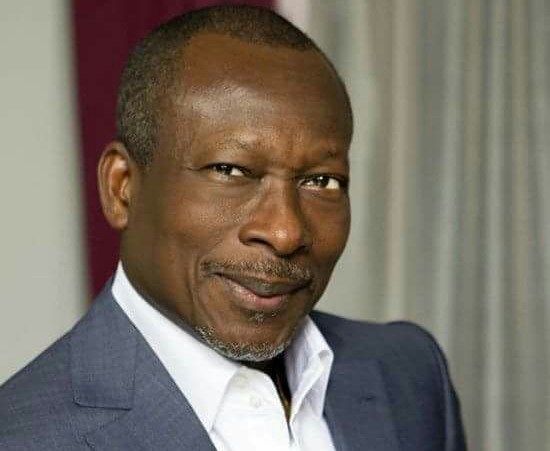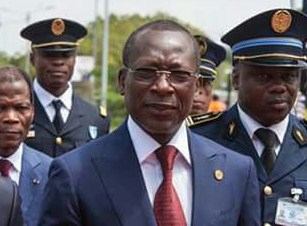Benin Republic for Sale. Really?

BY LOU SIFA
(WITH JULES MAOUSSI)
There was a wide-spread joke here in Benin that the only way out of the frustration over the lingering economic malaise, the daily power outage, water cut-off and poor Internet services was to sell the country to some foreign power and share the proceeds fairly among the citizens. Then in March, Patrice Talon, allegedly the wealthiest man in this country with a population of 11 million people, was elected president, raising hope that, unlike his predecessor Yayi Boni who, despite his Ph.D. in Economics, took the country nowhere near the status of emerging nation he promised, the new president would end the nightmare. Nine months into Talon’s tenure, there is no sign of improvement, which is leading to growing popular discontent.
PROMISING STEPS
The voters’ choice of Talon last March over outgoing President Yayi Boni’s prime minister Lionel Zinsou was the expression of their outrage about Yayi’s terrible legacy. Yayi probably has the worst records in Benin’s history in terms of governance, leaving behind a legacy of endemic corruption, unprecedented financial scandals and a ruined cotton sector, the country’s main export. Kicking in on April 6, the Talon administration was met with great expectations and did have a sweet honeymoon with the people, but only a short one.
Early on, Talon initiated a number of political and institutional reforms that gave the citizens hope he was on the right track. “We are now happy to watch contradictory debates and news stories on the government-owned television that are not necessarily favorable to the government,” stated Pascal Todjinou, the secretary-general of one of the consortia of workers union, CGTB. Also, the recurring power outage that has rendered life miserable in the country for years is a little less acute, to the people’s delight.
BURGEONING DISCONTENT
However, other decisions made by the head of state has raised eyebrows. Talon, a cotton magnate for several decades who is still heavily involved in the sector, puzzled many when he ordered the payment of more than 40 billion francs to cotton farmers, triggering the outrage of many who quickly pointed out that the staggering sum of money will serve, at least in part, his own business interests. Following vicious attacks in Benin’s free media and in the social media by relentless political activists who denounced the “suspicious nature” of the government’s heavy support for the cotton sector, the administration recently stated it would no longer put any money in the sector. Critics of the president push the envelope so far as to say that his plan to serve only one term—not to run for a second one as allowed by the Constitution—is proof that he’s in just to take care of his own business quickly and move on.
This initiative to boost the cotton industry is the only apparent shot in the arm the economy has so far received from the new administration, which allows the economic malaise to linger on. The depreciation of the naira, the currency used in neighboring Nigeria on which the Benin economy depends heavily by re-exporting items imported from Europe, Asia and the Americas, has made matters worse. This has nearly decimated the used car business in Benin, to mention only that, leading to huge losses of revenue for an array of entrepreneurs in port-related businesses who are frustrated by the lack of a clear strategy by the new authorities to meet this new challenge head-on.

A WHOPPING 2,010 BILLION CFA BUDGET
When, in this gloomy economic context, the new administration decided on an unprecedented staggering budget of 2,010 billion francs, some citizens laughed it off as a fiction. Speaking along the same line on October 17 at the opening of the second session of the parliament, the speaker of the parliament, Adrien Houngbédji, stated:
“Our economy is under the crushing influence of the ongoing economic recession in Nigeria, with the resulting diminished economic output and lower competitivity for the local industry, all leading to lower tax revenues.”
The chief lawmaker in the land then asked rhetorically:
“One wonders, therefore, if the budget proposal we have been presented with can crush the effects of this crisis.”
He called on the new executive body to come and share with his institution its plan for relaunching the economy. “The grace period is over,” Houngbédji flatly said. The parliament however swiftly adopted the new budget.
AN ILL-RECEIVED RELUCTANCE TO COMMUNICATE
The new executive body is also being clobbered by media organizations and others for its reluctance to communicate, this in the twenty-first century when communication is king and eagerly used by all manner of institutions throughout the globe. Early on, information about new official appointments made during the weekly cabinet meeting was available only in the social media, which prompted the secretary-general of one of the leading workers union, Dieudonné Lokossou, to call the new administration “a regime that operates behind closed doors.”
A VETERAN POLITICAL ACTIVIST SETS THE RECORD STRAIGHT
Speaking to “The African” on condition of anonymity, a veteran local political activist with a strong economic background who has held decades-long high-profile positions in the government apparatus dismisses the criticism, calling them “unfounded.” Pressed to explain the apparent lack of “even the beginning of change nine months after the president took charge,” the activist says:
“The depth of the socio-economic decay Talon has inherited called for in-depth diagnosis in order to chart the right course for an adequate cure.”
Quoting Talon with whom he has met a couple of times in recent months, the official—who is not a member of the Talon’s administration and doesn’t intend to be—stresses the president’s “total lack of interest in the pursuit of personal gains.” Talon, who is grateful to God for his financial success, has long passed the stage of wealth accumulation, the activist tells The African, adding that the president is grateful to God for rising to this position he initially did not intend to pursue, and is driven by the “burning desire” to improve the lives of his fellow-Beninese.
TALON’S AMBITIOUS PLAN OF ACTION
Then on December 16, the president unveiled his government’s ambitious plan of action in an upscale, nationally-televised ceremony. The president stated:
“I aspired to the highest position in our country as a result of my revolt against our collective and recurring poverty despite our potential. Our inventory of the past nine months has revealed a situation even more critical than the one we diagnosed earlier on.”
He added:
“Poverty is gaining ground, entire blocks of our economy are suffocated. Due to the state of our infrastructure which has received no attention for too long, economic activities and development have stagnated. Our social services fail to meet the minimum needs of the population; our educational system, the sowing ground of our future, is inadequate.”
Following the president’s passionate remarks, various cabinet ministers elaborated on their departments’ plans to implement the unprecedented Government Plan of Actions dubbed “Benin Revealed” via nearly 50 development projects.
Nine months may not be a long time in the context of a five-year term, but the clock is ticking mercilessly. A political operative who requires anonymity tells “The African” that the president’s plan to serve only one term diminishes his chances of achieving much. The official points to the next legislative election to be held in 2019, followed in 2020 by the local elections, then in 2021 by the presidential election, adding that “six months prior to an election in Benin, the country virtually grinds to a halt.” This, he concludes, will not work to the president’s advantage.
If the economic malaise deepens, then Benin might go on sale after all, with hope that the proceeds will be actually shared equally among the people. On the other hand, Talon, a resourceful business tycoon who rose to power after a tough climb, narrowly escaping possible death, might surprise his fellow-Beninese, via “Benin Revealed,” with an outcome brighter than what many fear at this point in time. Surprisingly, even members of the previous regime have applauded the “Benin Revealed,” with some apparently poised to join in.

